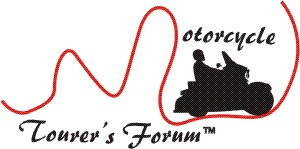
 |
Training Links |
[ MTF Home ]
[ Forum Guidelines ]
[ MTF Merchandise ]
[ MTF Calendar ]
[ MTF Tourer's Assistant ]
[ MTF Emergency Tags ]
[ MTF Commision Program ]
[ MTF Honors Page ]
[ Touring Links ]
[ Photo Album ]
[ MTF Logos ]
[ MTF Business Cards ]
[ MTF Gold Dealers ]
[ MTF Past Events ]